Author and cousin of Rosa Parks to read and sign her new book — podcast
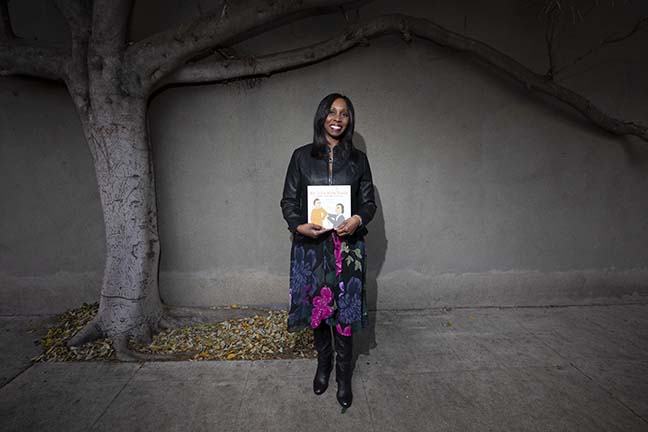
Angela Williamson will be signing copies and reading from her children’s book “My life with Rosie: A bond Between Cousins” on Saturday at the Folk Music Center. COURIER photo/Steven Felschundneff
by Mick Rhodes | mickrhodes@claremont-courier.com
Angela Sadler Williamson, cousin to civil rights icon Rosa Parks, will be reading from and signing copies of her new children’s book, My Life with Rosie: a Bond Between Cousins from 11 a.m. to 1 p.m. Saturday, February 26 at Claremont’s Folk Music Center. The event is free and open to the public.
Williamson’s aim in My Life with Rosie: a Bond Between Cousins, was to show school-aged kids how the diminutive NAACP secretary was more than the woman who refused to give up her seat on that Montgomery, Alabama bus on December 1, 1955, an action regarded as the first large-scale demonstration against segregation in the United States.
In fact, Parks founded the Montgomery branch of the NAACP’s Youth Council in the early 1940s, and later served as secretary of the pioneering civil rights group’s Alabama State Conference, where part of her job was to interview victims of discrimination and witnesses to lynchings. All this prior to her famous turn as “the first lady of civil rights.”
Williamson, a Fontana resident who grew up in Diamond Bar, is an author, an associate professor at Rio Hondo College, PBS television host, speaker, and the director of the award-winning 2017 documentary film, My Life With Rosie.
The gene for the documentary came when she was in her mid-forties and had just earned her doctorate in human services from Capella University in Minnesota. After listening to stories and interviews with her aunt, Carolyn Williamson Green, and Green’s three sisters and brother about Parks and her life of activism, she began to realize there was an entire swath of her history she hadn’t been taught in school, and not just as a child, but in college as well.
While promoting the documentary, Williamson traveled deep into rural America.
“I’ve gone to small towns in Georgia … that I don’t even know if I ever would have been able to go to in the fifties and sixties, to people who want this message,” Williamson said.
She’d shown a part of the film to a group of second-graders, and realized they were hungry for information about Parks. Work on the children’s book began shortly thereafter.
Her work promoting both the documentary film and the book have made clear to her that Americans’ perception of race, and just how much closer to a “post-racism” country we have moved since 1955, varies widely. The Trump years, with their corresponding increase in hate crimes, rise of the white power movement and the integration of racist ideology into mainstream politics and media, were also a wake-up call.
“There have been strides, but these are strides that should have been happening decades ago,” Williamson said. “And they’re happening rather slowly. So, there’s still work to be done, definitely. People are realizing that yes, there’s progress, but the progress is not for a majority of people who are still trying to scrape by.”
Not surprisingly, Williamson rejects the perception, widely held in Republican-controlled southern states, that by teaching a more nuanced view of the role institutional racism has played in the history of the United States—so called critical race theory—academics are somehow subverting the country’s past.
“We’re not letting people speak their truth,” she said. “So when professors are trying to speak their truth to say, ‘Okay, this is what your history books have said; this is what’s happening,’ I think when we limit that, then people will not have these authentic conversations.”
Williamson said the conversations need to come from the top levels of government, our education system, and at home.
“Those educators need to be supported. And they need to come from us in media, which some of us are starting to do, but we need more voices there, because that’s the only way people will start to listen.
“Progress is change, and change scares people. But we are not going to make progress if we don’t make changes.”
Having frank conversations about race is a fraught exercise in 2022 America. In some ways, things are more polarized than ever, Williamson said.
“I think it’s so important to start listening to a lot of these voices from the past, because they spent time instilling in others. Finding that middle ground is so much harder now than it was when I started majoring in this dynamic career field of media. It is so different now. I think a lot more of us need to come together to show that we can have these conversations and not polarize an entire group of people. To be honest, the only way I can do it is one step at-a-time.”
That polarization was in plain view when large sections of the country erupted in protest in May 2020 after George Floyd’s murder, Williamson said.
“And, come on America: we’re in 2022. We should have this problem of racism fixed by now, because we have future generations to think about.”
But with professors being threatened with losing their tenure for teaching about race on college campuses, is there a truly a way to “fix” racism in America?
“I think we can have a post-racist society, but we need to do the work now,” Williamson opined. “There needs to be more people that come on board.”
It’s obvious Williamson has a genuinely powerful streak of optimism. She acknowledges the overall state of race relations is heated, but still has hope that the young Americans—who are overwhelmingly more liberal politically and socially than their parents—can transcend the current crisis and help create a dominant culture where racism is finally on the retreat.
“That’s one of the reasons why I though, if we can [help educate] these children so young, because they don’t have the heart for that,” she said. “That’s something that’s taught.”
Since the 2020 publication of My Life with Rosie: a Bond Between Cousins she’s received dozens of photos of families of all races and cultures holding up the book and singing its praises. It’s been heartening.
“If one little book can do that, imagine if more people got on board and helped me spread this message,” Williamson said. “We could start building right now a post-racist society with our children.”
“So when they get to the point where they’re in college or they’re hiring people, they’re not going to see the person’s skin color. They’re not going to see gender, or a person’s possible disability. What they’re going to see is that person’s heart and what they bring to the table. I firmly believe that we can do that.”
Angela Williamson will sign copies of her new children’s book, My Life with Rosie: a Bond Between Cousins, from 11 a.m. to 1 p.m. Saturday, February 26 at the Folk Music Center, 220 N. Yale Ave., Claremont. More info is at https://www.folkmusiccenter.com.


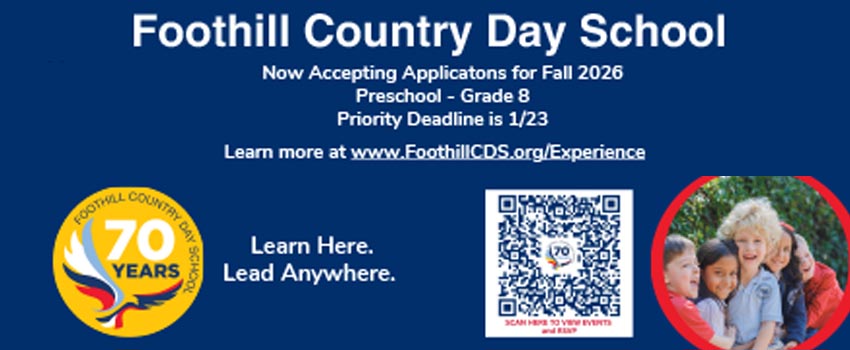
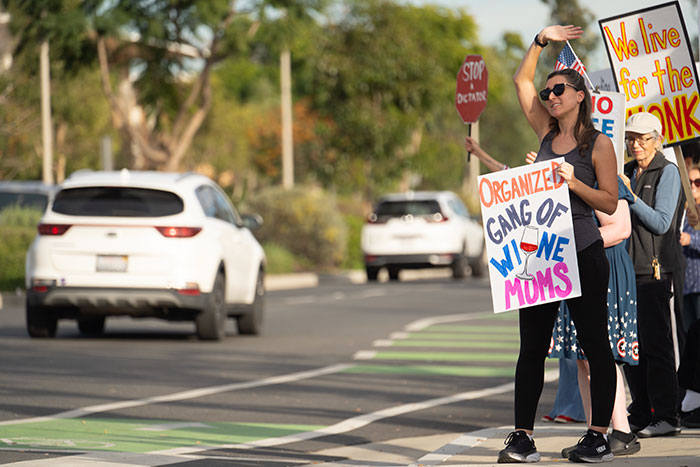
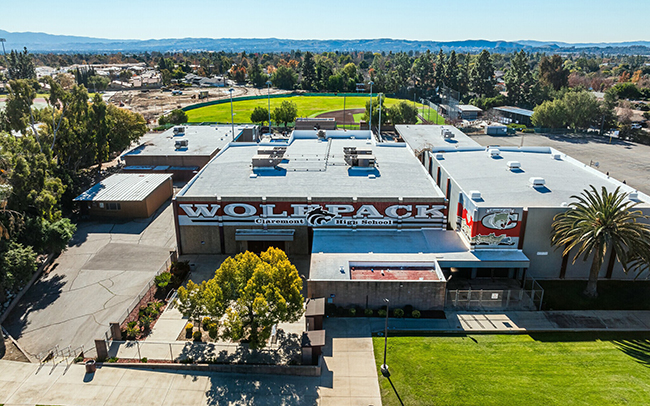
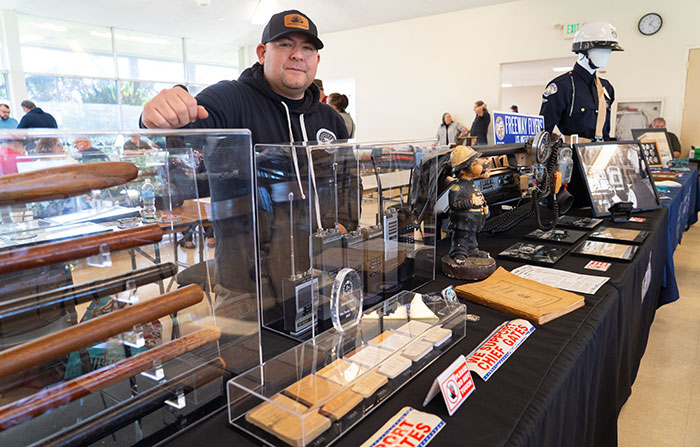
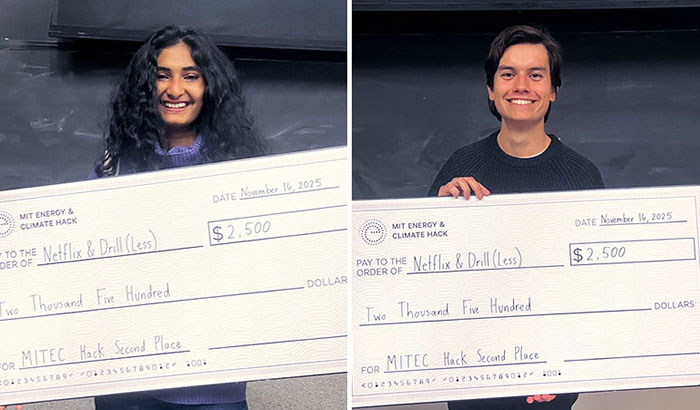


0 Comments